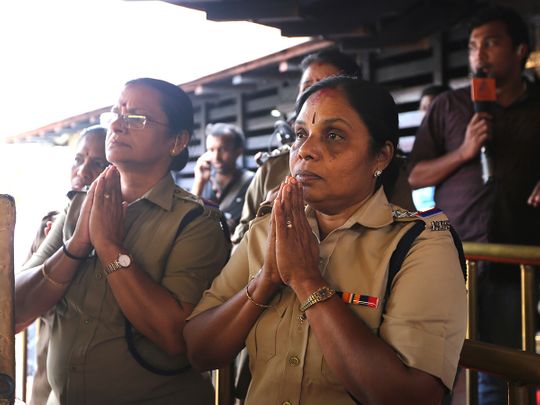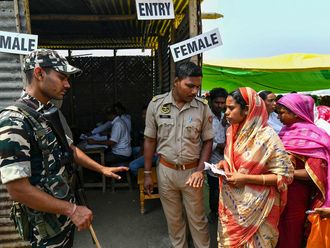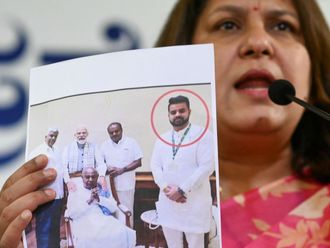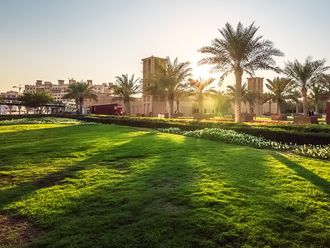
Thiruvananthapuram: Women who have been making attempts to pray at the Sabarimala temple in Kerala after India’s Supreme Court struck down a tradition that permitted gender discrimination, further nailed their right to enter the temple as a Sri Lankan woman succeeding in making the pilgrimage.
Senior police and government officials later confirmed her entry into the temple.
The Sri Lankan woman, identified as Sasikala Saravanamaran, 47, made the pilgrimage at the temple along with her husband and son late on Thursday night, only a day after two Kerala women scripted history by being the first to enter the temple following the apex court’s ruling in September 2018.
The entry of the first two women — Bindu Haridas, 42 and Kanaka Durga, 45 — had led to a shutdown call by the Sabarimala Karma Samiti (action committee) on Thursday, which saw widespread violence across the state including stone pelting, knife attacks and attacks on media persons and police. The shutdown was supported by the Bharatiya Janata Party.
“She entered the temple yesterday night. She is 47 years old and came as a devotee. We were aware and watched the situation,” Balram Kumar Upadhyay, a police official, said.
Upadhyay said that the situation at the temple on Friday was “normal for now”.
Thousands of Hindu hardliners, many of them female, had previously succeeded in preventing women from accessing the site in the weeks following the landmark ruling, with some hardliners throwing stones at police and assaulting female journalists.
Tradition at the Sabarimala temple prevented girls and women in the 10-50 age group from making the pilgrimage on the ground that the deity at the temple, Ayyappa, is a bachelor who does not desire the presence of young women.
Meanwhile, BJP leader and the party’s representative in the Rajya Sabha, the upper house of India’s parliament, V. Muraleedharan, said on Friday that there was “nothing wrong in women faithful entering Sabarimala”. He clarified that the opposition was towards activists making the pilgrimage.
The statement is contrary to the general line that the BJP has adopted in Kerala, which is to preserve the tradition at the temple, irrespective of the apex court verdict.
Meanwhile, even as three women have now managed to enter Sabarimala, a transgender was prevented from doing so on Thursday. The person, identified as Kayal from Theni in Tamil Nadu state was stopped from proceeding to the temple by a group of devotees. Police intervention was also not helpful as a strong contingent of protesters objected to her entry.
Clashes on Wednesday and Thursday between devotees, activists of Kerala’s ruling leftist alliance and riot police firing tear gas and water cannon, left one man dead and at least 15 people injured, including four who were stabbed.
Police said that 1,369 people have been arrested, and that the situation on the ground on Friday was peaceful but tense.
Much of the sporadic violence took place as Hindu hardliners sought to force shopkeepers to comply with a dawn-til-dusk “hartal” (shutdown) called by the Sabarimala temple hierarchy, media reports said.
On Tuesday tens of thousands of women, in an initiative backed by the state government, had formed a huge human chain called the “Women’s Wall” across Kerala to back the demand access.
The Supreme Court is to start hearing a legal challenge on its temple ruling — the latest in a series of verdicts to upset traditionalists and reflect a more liberal outlook in Indian society — from January 22.
Women are barred from a handful of Hindu temples in India. The entry of women of menstruating age to Sabarimala was taboo for generations and formalised by the Kerala High Court in 1991.
— with inputs from AFP












